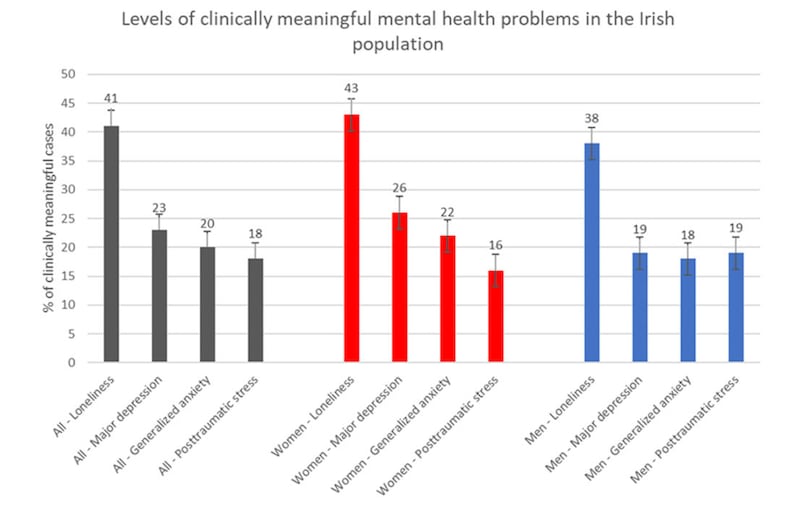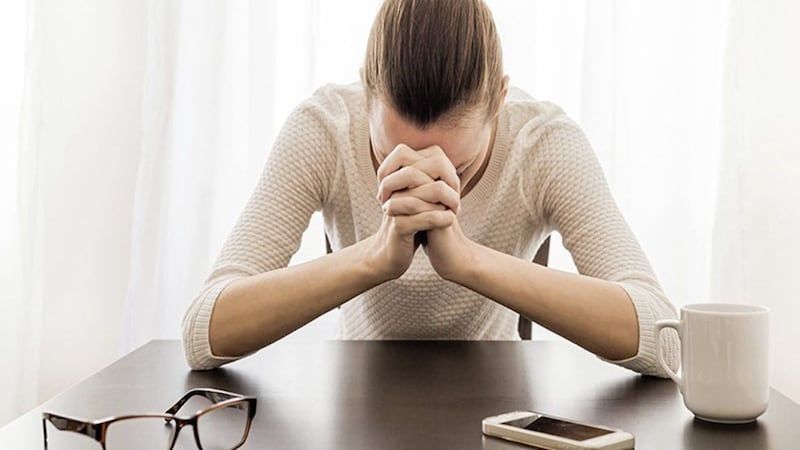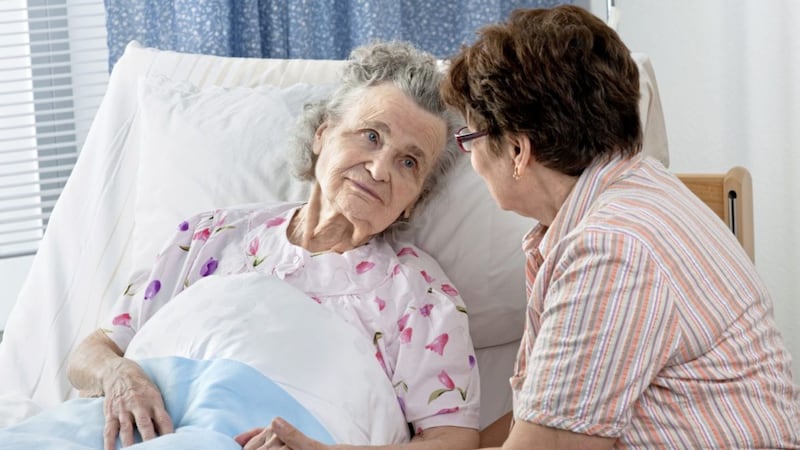A fifth of Irish people are suffering from post-traumatic stress, depression and anxiety as the coronavirus lockdown continues.
Researchers from Ulster University, Trinity College and Maynooth University in Dublin, Edinburgh Napier University and the University of Sheffield surveyed 1,000 people in the Republic almost three weeks after the first coronavirus restrictions were introduced and two days after a full lockdown was announced.
Initial results suggested that mental health problems have become common during the pandemic.
Around 41% of people reported feeling lonely; 23% reported clinically meaningful levels of depression; 20% reported feeling anxious, and 18% reported experiencing post-traumatic stress.
Dr Philip Hyland of Maynooth University said women were experiencing higher levels of depression and men were suffering higher rates of post-traumatic stress.
Dr Hyland said those who reported feeling lonely "were most likely to experience adverse mental health problems".
"We also found that younger people, those who have a tendency to think in catastrophic ways, those who fear being infected by COVID-19, and those who have had someone close to them infected by COVID-19 are at a higher risk of mental health problems," he said.

People who took part in the survey were asked about their attitudes to a possible coronavirus vaccine.
Dr Frédérique Vallières, Director of Trinity College’s Centre for Global Health, said he was concerned that only 65% of people surveyed said they would accept a vaccine for themselves and their children.
"A better understanding of why people might be hesitant to accept a COVID-19 vaccine, if and when it is developed is required," she said.
Researchers will hold a second survey before May 5 to examine what effect prolonged quarantine and physical distancing measures have on people’s mental health and wellbeing.
Dr Hyland said: “The social and political context of the present crisis is unique and the mental health consequences of this pandemic need to be properly understood to ensure the nation’s swift return to normal functioning when it is safe to do so.”








